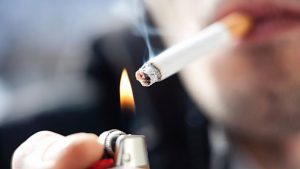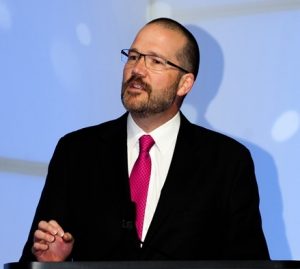
The latest figures on cancer in south west Sydney paint a sobering picture of our region.
The Cancer Institute NSW figures reveal that in 2016 approximately 4,855 people in the South Western Sydney Local Health District [SWSLHD] were diagnosed with cancer.
According to the institute, 1,675 local people died from cancer in the same 12 month period.
By 2026, it is predicted that an additional 1,800 people per year in SWSLHD will be diagnosed with cancer.
An additional 450 local people will die from cancer.
In the wake of the release of these new figures, SWSLHD is ramping up the fight against cancer.
This World Cancer Day, SWSLHD is joining forces with the Cancer Institute to encourage people to make a pledge to help change the future of cancer in our region.
As a community, there are measures that we can take together to decrease this number, according to SWSLHD.
Acting SWSLHD director of cancer services Dr Eugene Moylan says that under the campaign theme We Can I Can, World Cancer Day offered an opportunity to reflect on how we can act now to lessen the impact of cancer on our community and in our own lives.
[social_quote duplicate=”no” align=”default”]“One third of cancers in Australia can be attributed to lifestyle factors including smoking, UV exposure, alcohol intake, diet and physical activity,’’ Dr Moylan said.[/social_quote]
“By taking action to quit smoking, protect skin from harmful UV, moderate alcohol consumption, exercise regularly and eat well and a person can reduce their risk of developing cancer,” Dr Moylan said.
“As individuals, this is a chance for us to say ‘I can take responsibility for my health’ and encourage our loved ones to do so too,” he said.
While cancer prevention is important, so too is keeping up with relevant cancer screening, because we know that early detection of cancer can increase the chances of survival.

Chief Cancer Officer, NSW and CEO of the Cancer Institute NSW, Professor David Currow, says: “People can detect cancers early by participating in the relevant screening programs for them, including the national screening programs for cervical, breast and bowel cancers.
“People can also make sure they are aware of symptoms consistent with cancer and speak with their GP about any concerns.
“If you live in NSW, your chance of surviving a cancer diagnosis is among the highest in the world, which is in part due to NSW being a leader in cancer control globally,” says Professor Currow.
“By continuing to fund important research, we can help ensure findings from the laboratory are turned into new treatments available to patients and their carers as soon as they are developed.”
For more information on treatment and care, please visit the cancer institute website here.
